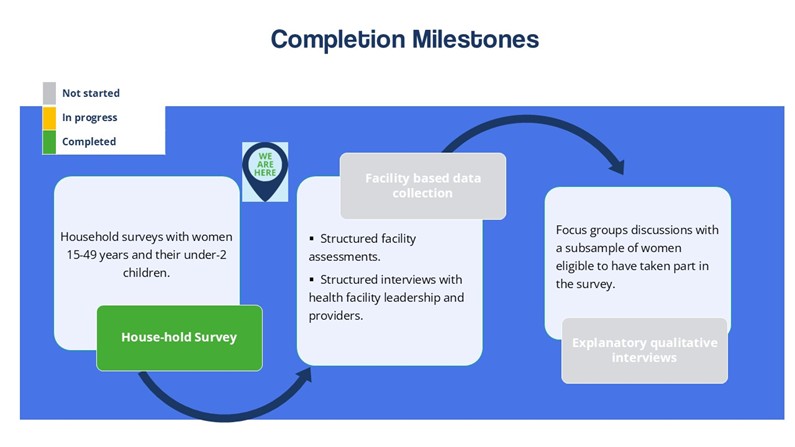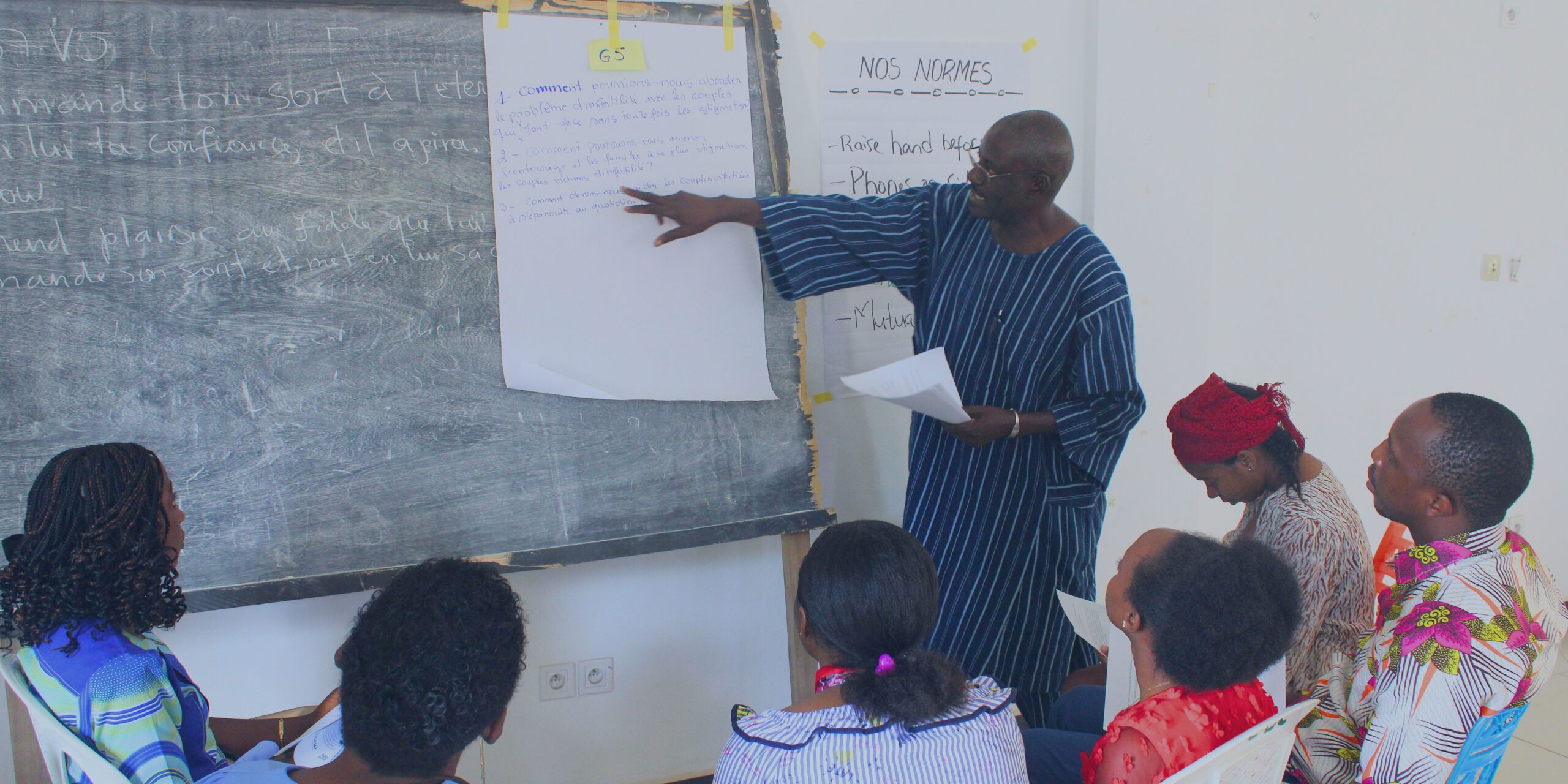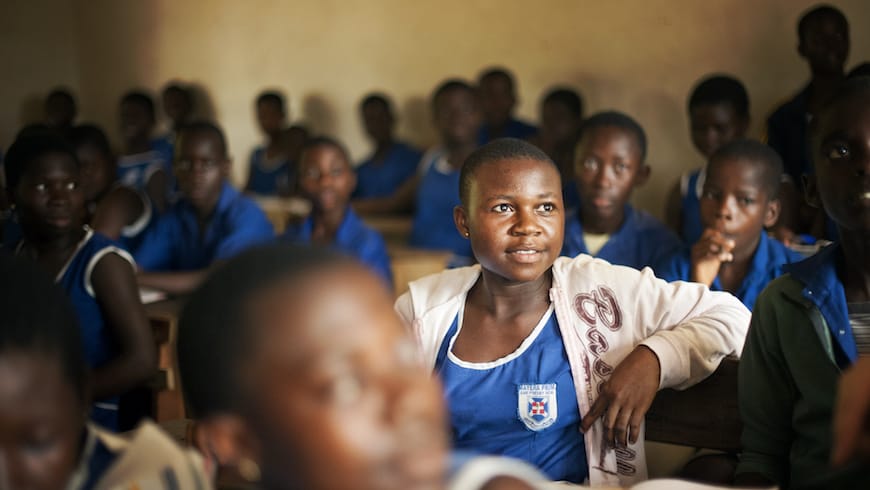Assessing Reproductive, Maternal, Newborn, Child Health, Family Planning and Nutrition (RMNCH+FP+N) health service Use and Barriers to Uptake among Women and Children in Niger
Niger faces critical health challenges, with some of the highest maternal mortality rates at 520 deaths per 100,000 live births (ENISED 2015) and infant mortality rates of 73 per 1,000 (ENAFEME 2021). Only 37% of pregnant women receive the recommended four prenatal visits, and 43.7% of births are attended by skilled personnel (ENAFEME 2021). Additionally, just 19% of infants are vaccinated with their second dose of measles (ENAFEME 2021). Data quality from the National Health Information Systems (SNIS) is limited, and other sources like DHS and MICS are outdated (MICS 2000 and DHS 2012). Recent studies, including PMA surveys and the Service Availability and Readiness Assessment (SARA 2019), also have limited coverage in terms of population and geographic areas.
Study Description
In order to better respond to the needs of women, children and families in relation to reproductive, maternal, newborn, child and adolescent health and nutrition (RMNCH+FP+N) in Niger, the USAID-funded Research for Scalable Solutions (R4S) project was asked to conduct a cross-sectional study. The study aims to collect data on the use and availability of RMNCH+FP+N services and to identify barriers to their use. Conducted by EVIHDAF under the supervision of FHI 360 in collaboration with the Institut National de la Statistique (INS), the study will run for one year (2023-2024) and cover the regions of Niger where USAID-funded health interventions are ongoing or planned, including Maradi, Tahoua, Dosso and Zinder.
This study will build on work currently being undertaken by R4S that aims to support the government to make evidence-based decisions related to FP programming including: (i) development of an FP Research and Learning Agenda that identifies priority evidence gaps and related research and learning questions; (ii) a study of FP self-care knowledge, attitudes and preferences of individuals and health care providers; and (iii) support to government to define and measure equity within FP programs.
Study aim and objectives
The aim of this study is to generate evidence on the current uptake of critical RMNCH/FP+N health services and barriers to service use to inform strategies to improve accessibility to and use of high quality RMNCH/FP+N services, and ultimately, health outcomes in Niger.
Specific objectives include to:
- Document the reported need for and use of specific RMNCH/FP+N services (Antenatal care; Facility-based delivery (or skilled birth attendant delivery); Post-partum care (mother); Post-natal care (infant); Infant immunization; Family planning (FP); Sexually transmitted infection (STI) screening and treatment, and HIV services);
- Examine reasons for non-use of these essential RMNCH/FP+N health services among women and children, with a particular focus on service accessibility and affordability;
- Assess the availability and quality of RMNCH/FP+N services and commodities for health services in select communities.
Approach
The study design makes use of a Cross-sectional, descriptive study with three main data collection activities:
- A household survey with a probability sample of women of reproductive age with a child less than 2 years of age;
- A health facility assessment and brief provider questionnaire conducted in health facilities that serve the study sites selected for the household survey and;
- Focus groups discussions with a subsample of women eligible to have taken part in the survey.

Snapshot
Study area: Niger (regions of Maradi, Tahoua, Dosso et Zinder)
Duration: 2023-2024
Funder: USAID through R4S Project
Consortium Partners: FHI 360; EVIHDAF; l’Institut National de la Statistique (INS)
Others Ongoing Projects

Social Behaviour Change Workshop on infertility
Social Behaviour Change Workshop on infertility

